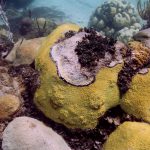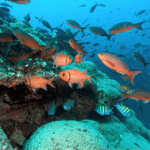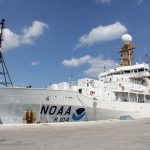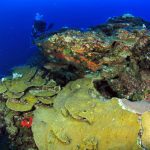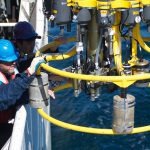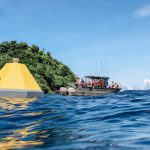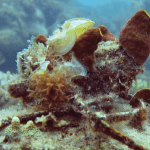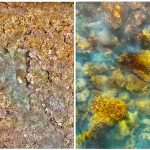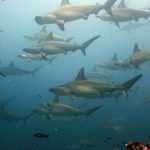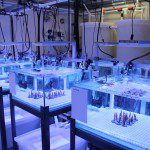A new study published in Applied and Environmental Microbiology suggests that bacteria and fungi associated with land-based sources of pollution such as sewage, storm water runoff and coastal inlet discharges may influence the biodiversity and health of coral reefs. Scientists from NOAA AOML and the University of Minnesota Biotechnology Institute (BTI) used genomic analysis to verify the influence of land-based pollutants on coral reefs. The results showed a link between microbe communities in ocean outfalls and inlets, and coral reefs in southeast Florida. This information can be used to improve contaminant mitigation and ecosystem management efforts in the region.
Scientists found that microbes and their genetic material from land-based sources of pollution could be found in reef water and in tissues of corals. This could affect the genomics of the native microbial communities found in coral reefs, which can impact how corals thrive and survive. These new insights highlight an additional potential threat to corals from land-based sources of pollution in southeast Florida, where corals are already under existential threat from warming oceans and resulting coral bleaching, disease and mortality.
The unique collection of microbes associated with the coral animal (called the “microbiome”) plays an essential role in coral health and nutrient cycling. Invading bacteria and fungi from land-based sources may disrupt this already fragile ecology of the coral microbiome, threatening both the coral and broader reef ecosystem health.
Over a two-year period, scientists collected water samples from Florida’s southeastern coast, including coastal inlet discharges, oceanic outfalls of municipal wastewater treatment plants, and treated wastewater effluent before discharge, as well as 16 coral reef sites in the area. The study focused on tissue samples taken from two commonly-occurring reef species in the area, Porites astreoides (mustard hill coral) and Siderastrea siderea (starlet coral).
Using next-generation sequencing, AOML and BTI scientists characterized the bacterial communities of the samples to determine the extent to which environmental discharges of microbes and their genetic material from land-based sources of pollution may influence the microbiomes of coral reef communities and coastal receiving waters. They used SourceTracker software to evaluate and quantify the genetic contributions of each of the land-based sources to the coral microbiomes.
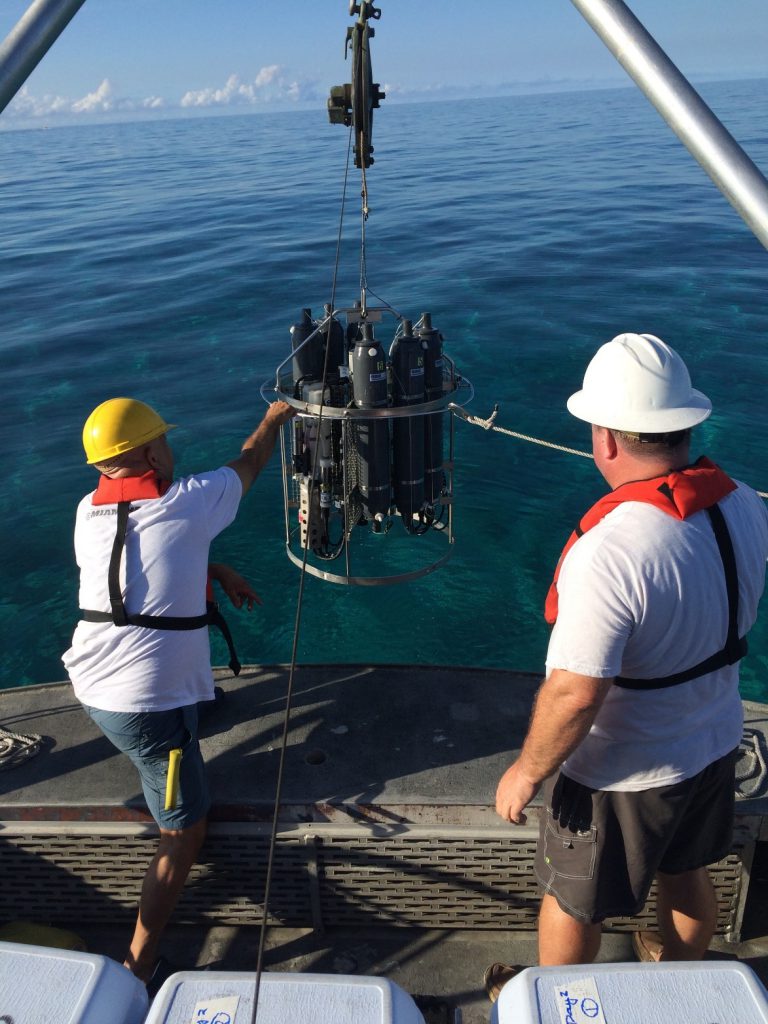
NOAA Scientists deploy a CTD instrument to collect water for nutrient, microbial and metagenomics analysis. Image credit: NOAA
Scientists found that certain bacterial species and fungal families were present in both the land-based sources and in tissues of sampled coral colonies. Contamination from outfalls was found to be the greatest potential source of land-based pollution influencing coral reef microbiome community structure. Pollution from the coastal inlets was a close second. Funding for the study was provided by NOAA’s Coral Reef Conservation Program. Access the full study here: Differential Impacts of Land-Based Sources of Pollution on the Microbiota of Southeast Florida Coral Reefs
Originally Published May 2017 by Sierra Sarkis
